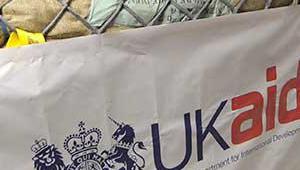In his one-year Spending Round, which has a shorter scope than conventional three-year spending reviews, Javid said today that the Department for International Development settlement will go from £9.3bn this year to £9.6bn in 2020-21.
This 1.5% real-terms increase, Javid said, would go toward projecting the government’s values around the globe.
He told the House of Commons: “Nowhere are our values of openness and tolerance better expressed than in international development. The UK Aid logo can be seen around the world: on health clinics, school books, emergency food suppliers.
“And today we protect our commitment to spending 0.7% of our national income on aid. Global Britain is about projecting our values into the world.”
The treasury document accompanying the Spending Round outlined several areas aid will be spent on, including: at least £250m to the international climate and environment fund; at least £170m for humanitarian support in Yemen and Syria; and an additional £30m to support developing nations in conserving their biodiversity.
It also outlined several general aims of the government, including providing healthcare, clean water and sanitation for the world’s poorest people; ensuring that children, particularly girls, get the education they deserve; tackling dangerous disease outbreaks like Ebola; and vaccinating millions of children against other deadly illnesses.
The UK will continue to spend 0.7% of gross national income on aid, the Treasury confirmed, to meet the government’s legal commitments.
Bond, a network of NGOs working in the development sector, said the commitment to meeting the aid target was “welcome”, but called on the government to ensure aid “remains focused on its primary objective of helping the world’s poorest people… untied to [the UK’s] strategic and economic interests”.
Our statement in response to the government's #SpendingRound and what it means for #UKAid, #DFID and #GlobalDev. pic.twitter.com/HMbNglJSRG
— Bond (@bondngo) September 4, 2019
This resembled criticism made last week by shadow international development secretary Dan Carden, who criticised the government for suggesting humanitarian aid could be used to open up foreign markets to UK businesses.













